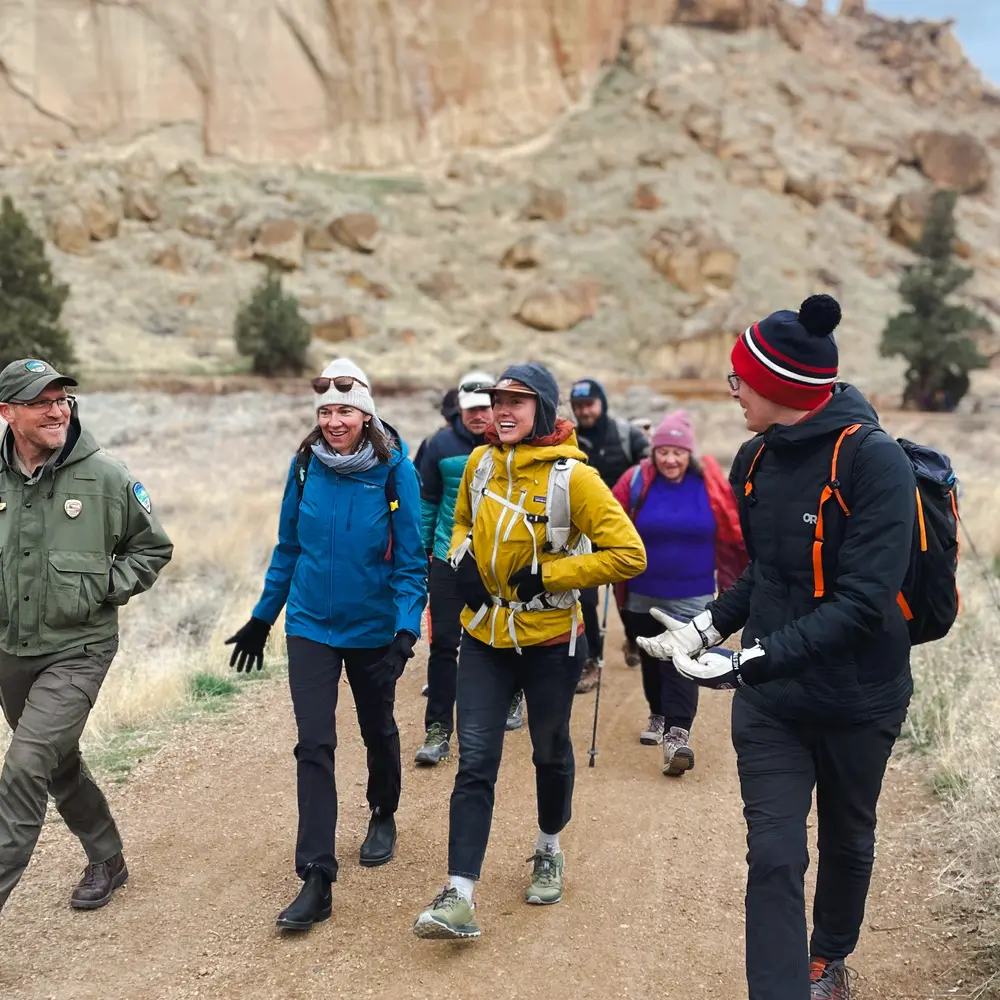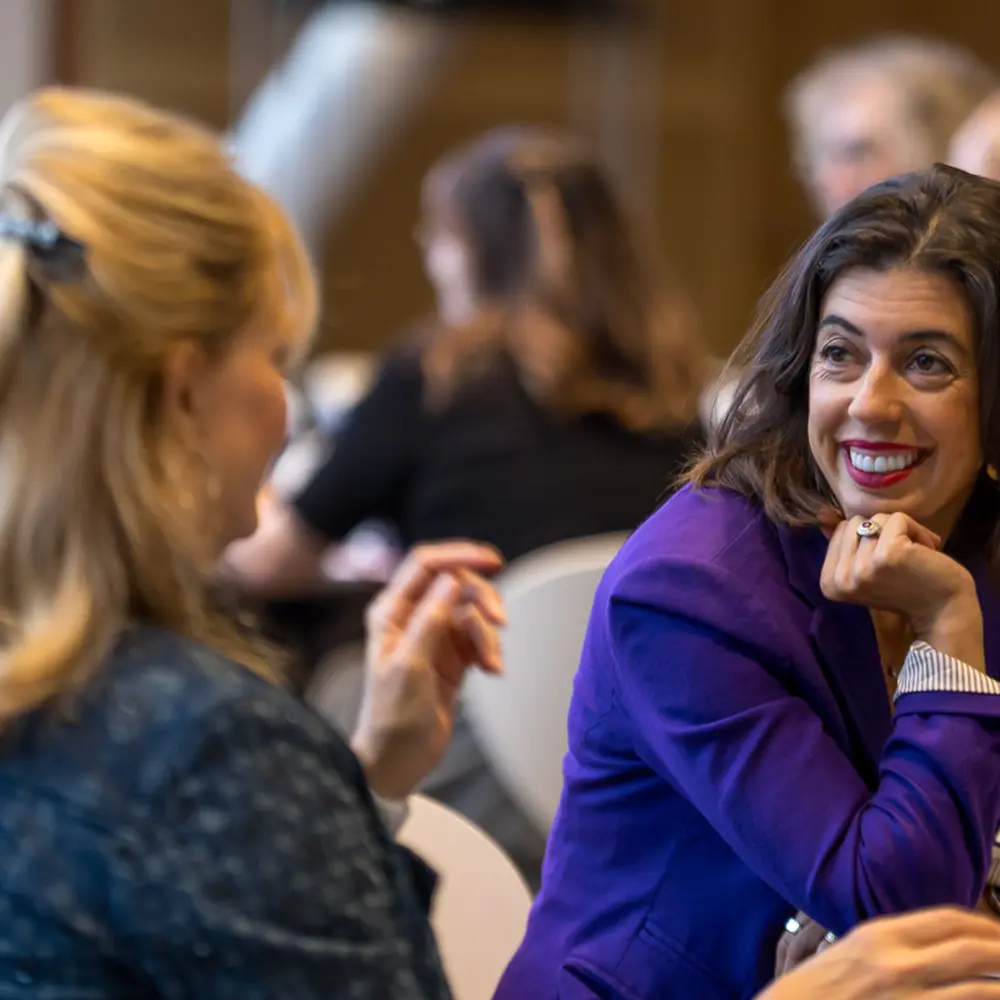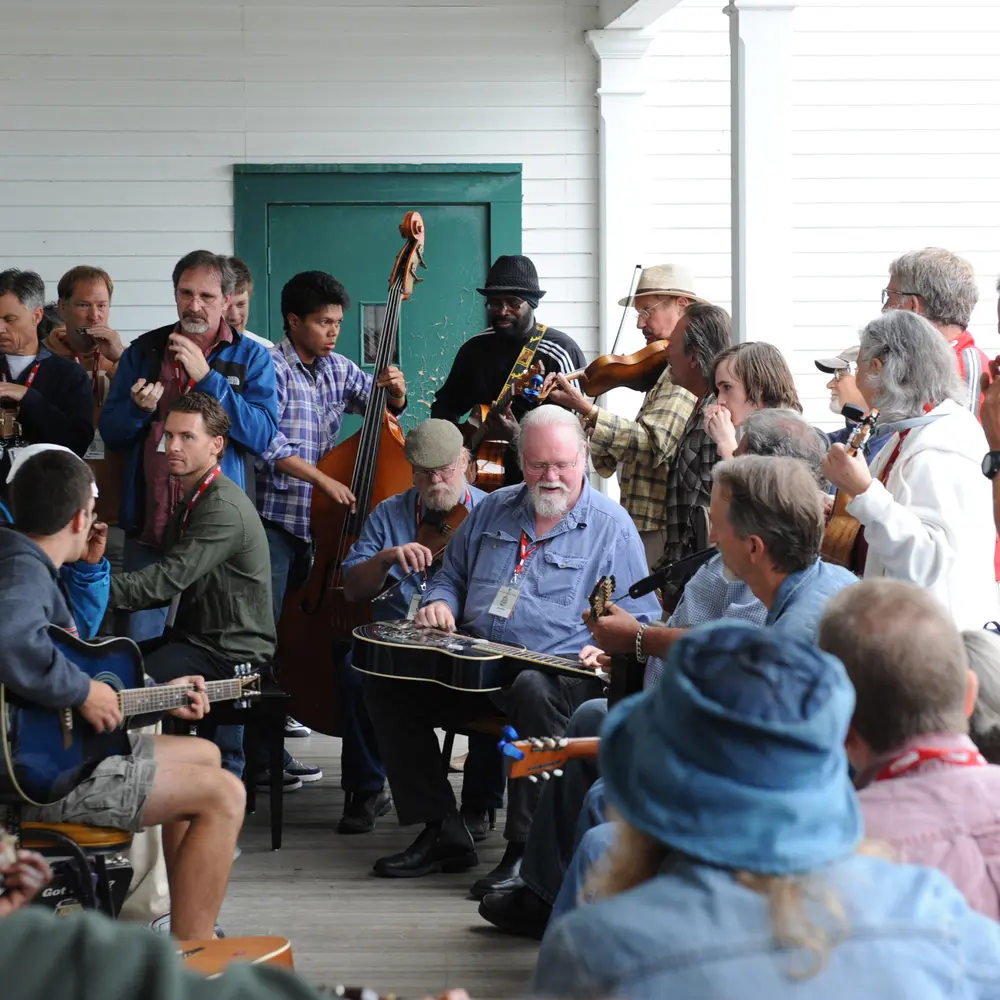Last week, we hosted the Jack Murdock Innovation Symposium in honor of our 50th anniversary. It was a day that would have made Jack proud. The energy in the room was palpable: innovative thinking, meaningful conversations, and connections that will undoubtedly ripple outward into our communities. My notebook overflows with insights, but more importantly, my heart is full from new and deepened relationships. Thank you to all who carved time from busy schedules to join us, and for the speakers, panelists, and the incredible team who orchestrated this gathering.
What surprised me most about our day was how two seemingly different keynotes revealed a profound connection — one that turns traditional thinking about moonshot innovation on its head.
Portland author and speaker Greg Bell delivered our afternoon keynote on the transformative power of reflecting on what's going well. This isn't about toxic positivity or turning away from real challenges. It's about recognizing a fundamental truth: nurturing gratitude is a habit we can cultivate, and when we do, nearly everything in our lives can benefit. I was profoundly moved by the impact Greg's talk had on those present who arrived bearing the emotional weight of challenges impacting their staff, their programs, and their communities. As we wrapped up for the day, people came up to me in tears, sharing how his words were exactly what they needed.
Let's be honest: if you're working in the nonprofit sector, naming what hasn't been going well lately may come more easily than usual. Increased demand for services, staff burnout, leading through change, and funding considerations — the list is formidable. Greg's message cut through that familiar narrative: when we pause to intentionally name what is working, we don't just feel better. We actually become more effective, more resilient, more creative in our problem-solving. The neuroscience backs this up, but honestly, our lived experience does too. Perhaps feelings themselves are a type of technology that we must harness for good.
But here's where the day's deeper revelation emerged. Earlier, we had opened with Radhika Dirks capturing an inspiring, high-level vision of AI innovation. Radhika's presence was a revelation, a reminder that optimism, when paired with boldness, is not naïveté but an animating force for the future. She invited us to consider a moonshot vision, one in which unimagined optimism and creativity do not simply inspire, but propel us toward solving some of the world's greatest challenges.
What I hadn't expected was how seamlessly Greg's afternoon message would illuminate the foundation of Radhika's morning call to moonshot thinking. True moonshot innovation isn't rooted in desperation or a desire to escape current realities. It's grounded in a fundamental belief that where we're headed is worth it, that we have what it takes to get there, and that the destination is worth the risk of failing. Greg's framework — intentionally recognizing what's going well — provides exactly this bedrock of confidence that moonshot thinking requires.
Radhika painted a future where intentionally focusing on what is going well isn't just a feel-good exercise; it is the fuel for social innovation and the catalyst for unleashing human potential on a global scale. But she also grounded this vision in reality: she urged us to recognize that boundless optimism must be coupled with a commitment to security, equity, and discernment. As we harness new possibilities, we hold responsibility for ensuring that our advances reduce bias and protect the vulnerable. Radhika's call to action served as a necessary ballast, reminding us that true hope is not reckless, but thoughtful and vigilant. If we do this well, as she suggested, the possibilities before us truly are endless.
Because this year has asked so much of us, I want to close by following Greg's example and naming what I see going well in our sector — the foundation that makes our moonshots possible:
We have unwavering commitment to the common good, even when the path forward feels unclear. We have leaders who navigate impossible challenges with grace and strength that inspires me daily. We have nonprofit professionals who show up to the hard, essential work of caring for communities in whatever form their role takes. We have donors and volunteers who give generously of time and resources, often quietly and without recognition.
Most of all, we have each other. We have care, compassion, resilience, and genuine community. At the end of even the hardest days, these qualities prove more powerful than any loss we might face.
Those are realities and possibilities that make our moonshots not just dreams, but achievable destinations worth the journey.
-Romanita Hairston, CEO






